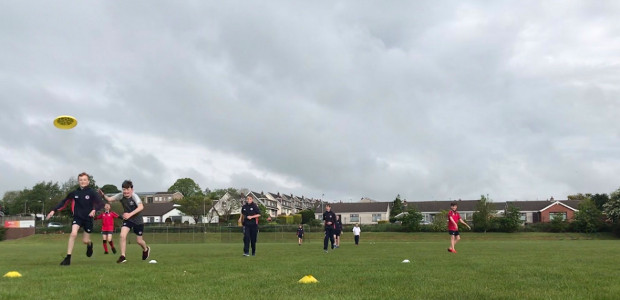As far as we know the 5 new laws will apply to Minor League rugby but as long as they do not affect the U-19 law variations.
However the Ulster Refs’ conference is on the 19th August at which they will get the formal IRB directives and interpretations.
In referee circles the debate is at fever pitch over the various techniques for the implementation of the directives by the refs’ such as the “crouch, touch, set” at scrums.
The great thing is that we will be pretty near perfect both from a playing and refereeing perspective given how we have so successfully adapted to all the recent new variations. The first couple of weeks of the season will be very interesting to see how players excell with the new laws.
The full set of the new laws & ammendments are below:
The five Law amendments to be trialled globally are:
1. Law 16.7 (Ruck): The ball has to be used within five seconds of it being made available at the back of a ruck with a warning from the referee to “use it”. Sanction – Scrum.
2. 19.2 (b) (Quick Throw-In) For a quick throw in, the player may be anywhere outside the field of play between the line of touch and the player’s goal line.
3. 19.4 (who throws in) When the ball goes into touch from a knock-on, the non-offending team will be offered the choice of a lineout at the point the ball crossed the touch line; or a scrum at the place of the knock-on. The non-offending team may exercise this option by taking a quick throw-in.
4. 21.4 Penalty and free kick options and requirements: Lineout alternative. A team awarded a penalty or a free kick at a lineout may choose a further lineout, they throw in. This is in addition to the scrum option.
5. A conversion kick must be completed within one minute 30 seconds from the time that a try has been awarded.
In addition to the global trials, the IRB Council approved three specific additional trials:
1. A trial to extend the jurisdiction of the TMO to incidents within the field of play that have led to the scoring of a try and foul play in the field of play to take place at an appropriate elite competition in order that a protocol can be developed for the November 2012 Tests.
2. A trial has been sanctioned for the November 2012 Test window permitting international teams to nominate up to eight replacements in the match day squad for Test matches. In line with current practice at domestic elite Rugby level, the additional player must be a qualified front row player.
3. An amendment to Law 3.4 (Sevens Variation) to enable Sevens teams to nominate up to five replacements/substitutes. Under the revision, which will operate from June 1 2012, a team may substitute or replace up to five players during a match. Approval has been granted on player welfare grounds to recognise the additional demands on players and squads owing to the expansion of the HSBC Sevens World Series where there are three blocks of three events on consecutive weekends.
Council also approved the referral by the Laws Representative Group of one potential Law amendment that was successfully trialled at Cambridge and Stellenbosch for further consideration by the specialist Scrum Steering Group (overseeing scrum force project) to be considered alongside the ongoing review of the scrum.
The amendment that will be considered by the Group relates to the engagement sequence and will see the referee call “crouch” then “touch”. The front rows crouch then touch and using outside arm each prop touches the point of the opposing prop’s outside shoulder. The props then withdraw their arms. The referee will then call “set” when the front rows are ready. The front rows may then set the scrum.
“We have a collective responsibility to ensure that the Game is as enjoyable to play, officiate and watch as possible at every level while player welfare is of paramount importance,” said IRB Chairman Bernard Lapasset.
“Rugby is currently in good health with participation growing around the world, but there is collective responsibility to ensure that a structured process can be implemented to allow for global analysis and to monitor trends relating to the shape and character of the Game as it evolves.”
“The approval of five aspects of Law for global trial is the culmination of the Laws Amendment Process which was agreed by the IRB Council in 2009. The journey to this point has been exhaustive and collaborative and has involved full stakeholder consultation and I would like to thank Member Unions for their buy-in and commitment to the process from the outset.”
“The Laws Representative Group were encouraged by the outcomes of the initial trials in Cambridge and Stellenbosch. The next step is a global trial with full buy-in and which has been approved by Council on the basis that the amendments can have a positive effect on the playing of the Game.”
“The global trials are not fait accompli. It is essential at the end of the global trial process that decisions made are in the best interest of Rugby worldwide,” added Lapasset.






